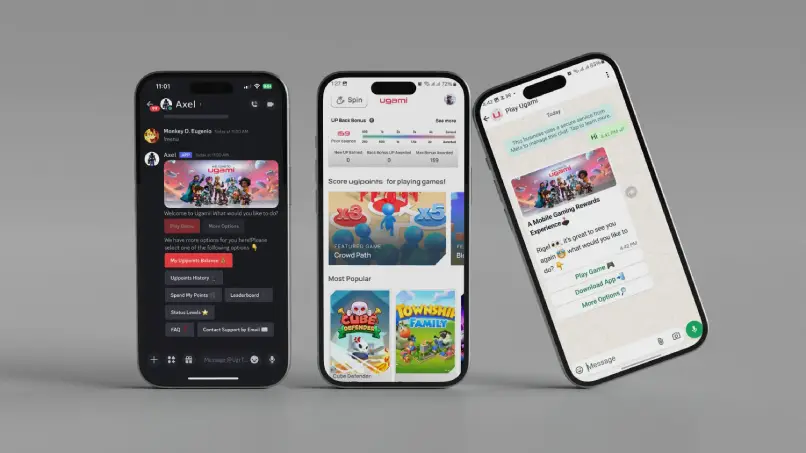Why Play-to-Earn Incentives Are Altering the Means You Play and Earn
The development of play-to-earn versions represents a remarkable change in the video gaming landscape, welcoming players to check out not just the home entertainment value of video games but also their prospective as income-generating systems. Comprehending these dynamics raises relevant questions about the future of video gaming and the effects for both gamers and designers alike.
Introduction of Play-to-Earn Models
Recently, the pc gaming industry has seen a significant improvement with the emergence of play-to-earn models, essentially modifying just how players engage with digital atmospheres. This innovative technique permits players to acquire tangible rewards with their in-game activities, producing a change from traditional pc gaming standards where satisfaction and competitors were the main inspirations.
Play-to-earn designs utilize blockchain modern technology and non-fungible symbols (NFTs) to offer players with possession of in-game possessions, which can be traded or cost real-world money. Therefore, gamers are incentivized to spend time and effort into video games, fostering a feeling of company and monetary chance. play to earn rewards. This change has actually attracted a varied player base, including those who may have formerly checked out pc gaming as a totally leisure activity
Several systems have actually arised, showcasing effective executions of this design, such as Axie Infinity and Decentraland. These systems have not only produced significant income yet also stimulated discussions around the sustainability and values of such economic systems. As play-to-earn models proceed to progress, they guarantee to redefine the relationship in between players, developers, and the broader electronic economic climate, leading the way for a new era in gaming.
Advantages for Players
As players engage with play-to-earn versions, they open a series of benefits that extend beyond mere enjoyment. One of one of the most substantial benefits is the possibility for financial rewards. Unlike conventional pc gaming, where players spend time and cash without concrete returns, play-to-earn systems allow players to make copyright or in-game properties that can be converted to real-world worth. This financial incentive not only boosts engagement but likewise cultivates a feeling of possession over the pc gaming experience.
Furthermore, play-to-earn versions promote area structure among players. Players commonly team up to accomplish common objectives, thereby growing social links that enhance the total experience. This feeling of area can cause participating gameplay, where gamers share approaches and sources, boosting both personal and team accomplishments.
Moreover, these designs can democratize accessibility to gaming by permitting gamers from varied economic backgrounds to profit financially. By taking part in play-to-earn ecosystems, people can acquire abilities and expertise concerning blockchain modern technology, further widening their profession possibilities in the burgeoning digital economic climate. Ultimately, the benefits for players extend well beyond gameplay, impacting their social, financial, and instructional landscapes favorably.
Obstacles in the Environment
While the play-to-earn ecological community offers significant possibilities, it is not without its challenges. Variations in value can prevent prospective players who seek secure earnings streams.
One more difficulty is the danger of frauds and deceitful systems that can pester the ecosystem. Players might come across misleading systems promising high incentives yet eventually resulting in financial loss. her response Ensuring trust and safety and security is critical for the long-lasting practicality of play-to-earn versions.
Additionally, the environmental influence of blockchain gaming can not be forgotten. The power consumption connected with mining and deal handling elevates ethical inquiries regarding sustainability. Video game programmers need to discover a balance between rewarding players and minimizing ecological footprints.
Lastly, the governing landscape is still progressing, posturing potential risks for designers and gamers alike. Uncertain legal frameworks can prevent innovation and restrict the development of play-to-earn ecosystems. Attending to these challenges is necessary for realizing the complete capacity of this transformative pc gaming paradigm.
The Duty of Blockchain Modern Technology
Blockchain modern technology works as the backbone of the play-to-earn environment, attending to most of the challenges formerly described. By using decentralized ledgers, blockchain ensures transparency and safety and security in purchases. Gamers can confidently gain and trade in-game possessions, knowing that ownership is proven and not subject to control.

Tokenization of possessions plays a crucial duty, granting gamers real possession of their in-game products, which can be gotten, sold, or traded on different industries. This motivates click to investigate a dynamic second market, where players can monetize their abilities and time bought the game.
Moreover, blockchain modern technology makes it possible for interoperability in between different video games and platforms, enabling gamers to carry their properties throughout different ecological communities. This versatility not just enhances individual experience yet additionally promotes a much more comprehensive gaming atmosphere, inevitably improving the landscape of gaming and earning.
Future Fads in Pc Gaming
The pc gaming industry is on the verge of a transformative advancement, driven by emerging technologies and moving gamer assumptions. As play-to-earn models gain traction, players are progressively looking for immersive experiences that mix entertainment with tangible benefits. This shift is triggering programmers to introduce, concentrating on creating engaging gameplay that fosters community and interaction.
One significant pattern is the assimilation of digital fact (VIRTUAL REALITY) and boosted fact (AR), enhancing the gaming experience by providing deeper immersion and interactive environments. Additionally, advancements in synthetic intelligence are enabling much more sophisticated non-player characters (NPCs) and flexible gameplay, customizing experiences to specific gamer preferences.

Verdict
Finally, the play-to-earn version is substantially transforming the gaming landscape by enabling gamers to obtain real-world value from their in-game tasks. This standard shift not only boosts player engagement and investment but also raises obstacles that need to be addressed to ensure sustainability within the ecological community. As blockchain modern technology remains to facilitate possession of digital assets, the future of video gaming promises more advancement and opportunities for browse around here gamers across varied backgrounds.